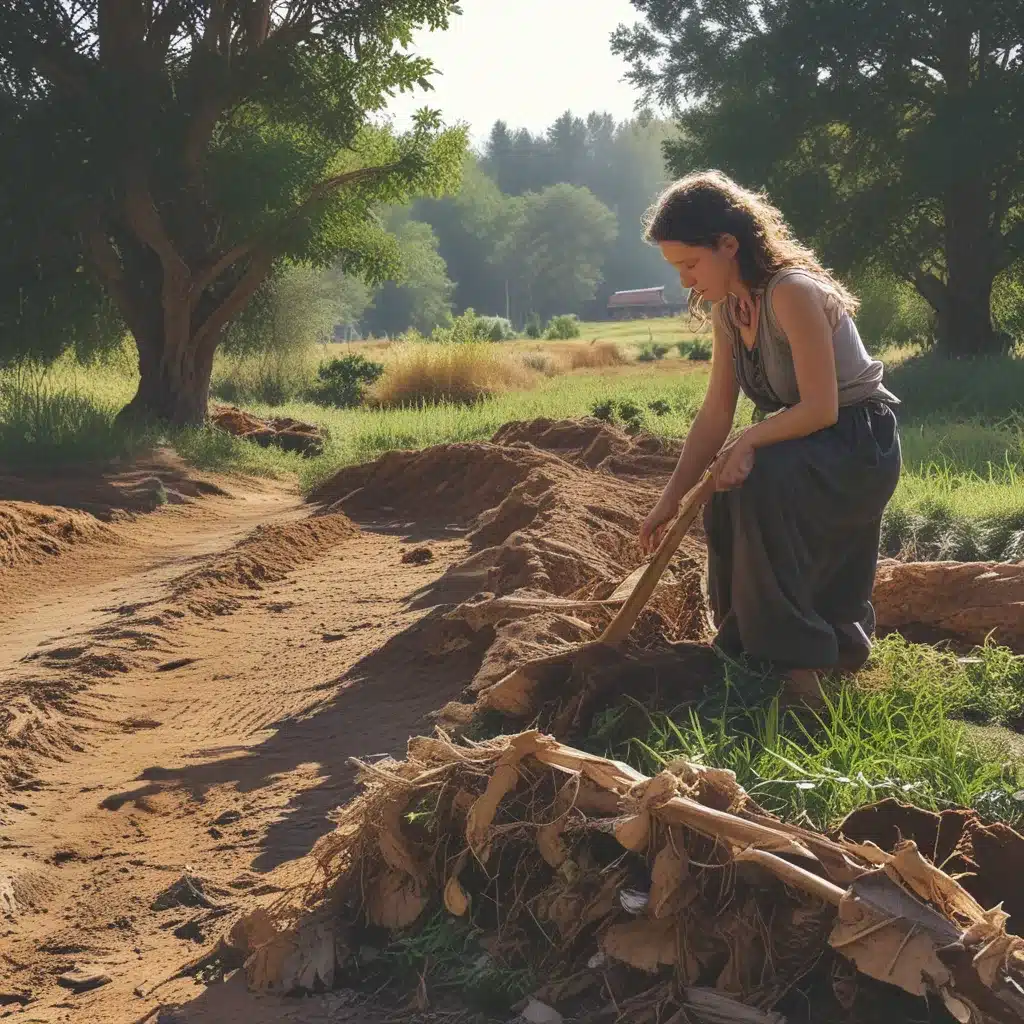
Rediscovering the Forgotten Past
Have you ever wondered about the origins of the fresh, wholesome produce you find at your local farmers market or in your community-supported agriculture (CSA) box? As a self-proclaimed foodie and avid supporter of the Thorn Apple CSA, I’ve always been fascinated by the rich history behind traditional farming practices. Join me as we embark on a journey to unearth the roots of these time-honored methods and discover how they continue to shape the future of sustainable agriculture.
The Punjabi Farmers of California
Let’s start our exploration by traveling back in time to the early 20th century. In the 1920s, a group of Punjabi immigrants, many of them Sikh farmers, found themselves settling in California’s Central Valley. These pioneering individuals brought with them a deep understanding of sustainable farming practices honed over generations in their homeland.
Navigating the unfamiliar terrain of their new environment, the Punjabi farmers quickly adapted their traditional techniques to the unique climate and soil conditions of California. They employed methods like crop rotation, intercropping, and the use of natural fertilizers, all of which were integral to the holistic approach they had learned back in India.
What’s truly remarkable is how these farming practices, once considered unconventional, have now become the cornerstones of the modern organic and sustainable agriculture movements. The Punjabi farmers’ commitment to working in harmony with nature laid the groundwork for a more environmentally conscious approach to food production, an ethos that continues to resonate with CSA members and conscious consumers alike.
Rediscovering Ancient Wisdom
As I delve deeper into the history of traditional farming, I’m struck by the profound wisdom and foresight embodied in these time-honored practices. Take, for instance, the concept of polyculture, or the cultivation of multiple crops simultaneously. Researchers have found that this approach not only enhances soil fertility and biodiversity but also contributes to greater resilience in the face of climate change, pest infestations, and other environmental challenges.
It’s fascinating to consider that these techniques, which may seem novel to modern eyes, have their roots in ancient agricultural systems practiced for centuries, if not millennia. In fact, studies have revealed that many traditional farming methods, such as the use of companion planting and integrated pest management, were already well-established in various cultures around the world long before the rise of industrial agriculture.
As I reflect on this, I’m reminded of the old adage, “There’s nothing new under the sun.” The principles that drive sustainable, regenerative farming have always been with us; we’ve simply forgotten them in our pursuit of technological and industrial “progress.” But now, as we grapple with the pressing environmental challenges of our time, we’re rediscovering the value and relevance of these age-old practices.
Cultivating a Deeper Connection
One of the most remarkable aspects of traditional farming is its ability to foster a deeper connection between people and the land. Rather than viewing the earth as a resource to be exploited, these time-honored methods encourage a symbiotic relationship, where farmers work in harmony with nature to nourish the soil and produce bountiful harvests.
As a member of the Thorn Apple CSA, I’ve had the privilege of witnessing this connection firsthand. The farmers who tend to the land with such care and dedication are not mere suppliers of produce; they are stewards of the earth, guardians of a legacy that stretches back through the generations. Their commitment to sustainable practices not only yields delicious, nutrient-dense crops but also cultivates a sense of community and shared responsibility.
The Resurgence of Traditional Farming
It’s heartening to see the resurgence of traditional farming practices in recent years, as more and more people seek to reconnect with the land and support local, regenerative agriculture. This renewed interest is not just a passing fad, but a profound shift in the way we think about food production and our relationship with the environment.
The growth of CSA programs, like the one I’m proud to be a part of, is a testament to this shift. These community-driven initiatives provide a direct link between consumers and farmers, allowing us to access fresh, seasonal produce while supporting sustainable agricultural methods. By choosing to participate in a CSA, we’re not just buying food – we’re investing in the preservation of our agricultural heritage and the health of our planet.
Embracing the Future, Honoring the Past
As I look towards the future of farming, I can’t help but feel a sense of optimism. The principles that have guided traditional agricultural practices for centuries are now being embraced and refined, with modern scientific research and technological advancements further enhancing their effectiveness.
From precision farming techniques that minimize resource use to the integration of renewable energy sources on small-scale farms, the future of sustainable agriculture is bright. And at the heart of this transformation are the stories and experiences of the visionary farmers who have come before us, whose knowledge and dedication have paved the way for a more harmonious relationship between humanity and the land.
So, the next time you bite into a juicy tomato or savor the earthy sweetness of a freshly harvested carrot, I invite you to pause and reflect on the rich history that lies behind that nourishing morsel. For in doing so, you’ll not only appreciate the food on your plate but also the timeless wisdom and resilience of the farming traditions that have sustained us for generations.



